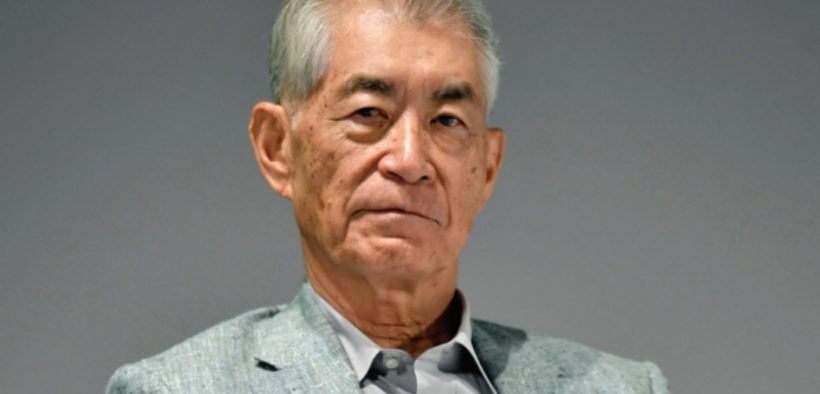The Lifesaver

“In the field of medicine, there are two paths to choose, one is treating patients and other is researching and finding newer techniques to treat patients better.”
Dr. Tasuku Honjo discovered a gene 25 years ago that is key to the human body’s immune response. And that work has been instrumental in the development of immunotherapy. “There are still several problems, but two are most important,” says Dr. Honjo. “One is, still only 30 percent of patients are responding. So we wish to have some biomarkers to predict whether he or she is responsive or not. Secondly, definitely we wish to improve the efficacy of this treatment, and I’m sure this is a target of many, many scientists in the companies. I believe these two problems will be solved in the near future.”
Dr. Honjo is predominantly known for the identification of Programmed Cell Death Protein 1 (PD-1). He is also known for his molecular identification of cytokines: IL-4 and IL-5, and the discovery of Activation-induced Cytidine Deaminase (AID) that is essential for a class switch recombination and somatic hypermutation. Born in Kyoto Prefecture, Japan, in 1942, Dr. Honjo acquired his MD Degree from Kyoto University in 1966. He went on to get his Ph.D. in medicinal chemistry in 1975. From 1971 to 1973, Dr. Honjo was a visiting fellow at the Department of Embryology, Carnegie Institution of Washington. He moved to Bethesda, Maryland, to study the genetic basis for the immune response at the National Institute of Child Health and Human Development from 1973 to 1977. He then joined as an NIH Fogarty Scholar in Residence starting from 1992.
The Nobel Prize winner was also a professor in the Department of Genetics, Osaka University School of Medicine, Department of Medical Chemistry, Department of Immunology and Genomic Medicine at Kyoto University Faculty of Medicine. Dr. Honjo is also an honorary member of the American Association of Immunologists. He was voted as the president of Shizuoka Prefecture Public University Corporation from 2012 to 2017. In 2017, he also became deputy director-general and distinguished professor of Kyoto University Institute for Advanced Study.
The Kyoto Prize for Life Sciences, Imperial Prize of the Japan Academy, Keio Medical Science Prize, Fudan-Zhongzhi Science Award, Thomson Reuters Citation Laureates are a few amongst the long list of Dr. Honjo’s awards. But, for Dr. Honjo, the best prize is winning hearts.”You saved my life—it is the most enjoyable thing to hear and, I would say, I’m very pleased to know what I have done is really meaningful. Immunotherapy has the potential to do a lot for cancer like the discovery of penicillin did for infectious diseases in 1928,” he says.
Winners over the past decade
The Nobel Prize in Physiology or Medicine has been awarded 109 times to 216 Nobel Laureates between 1901 and 2018.
Here’s a list for the last 10 years.
2017
Jeffrey C Hall, Michael Rosbash and Michael W Young
For discovering molecular mechanisms controlling the circadian rhythm
2016
Yoshinori Ohsumi
For discovering mechanisms for autophagy
2015
William C Campbell and Satoshi Ōmura
For discovering a novel therapy against infections caused by roundworm parasites
and
Youyou Tu
For discovering a novel therapy against malaria
2014
John O’Keefe, May-Britt Moser and Edvard I Moser
For discovering cells that constitute a positioning system in the brain
2013
James E Rothman, Randy W Schekman and Thomas C Südhof
For discovering machinery regulating vesicle traffic, a major transport system in our cells
2012
Sir John B Gurdon and Shinya Yamanaka
For discovering that mature cells can be reprogrammed to become pluripotent
2011
Bruce A Beutler and Jules A Hoffmann
For discovering the activation of innate immunity
And
Ralph M Steinman
For discovering the dendritic cell and its role in adaptive immunity
2010
Robert G Edwards
For discovering the development of in vitro fertilization
2009
Elizabeth H Blackburn, Carol W Greider, and Jack W Szostak
For discovering how chromosomes are protected by telomeres and the enzyme telomerase
2008
Harald Zur Hausen
For discovering that human papillomaviruses cause cervical cancer
And
Françoise Barré-Sinoussi and Luc Montagnier
For discovering human immunodeficiency virus
















